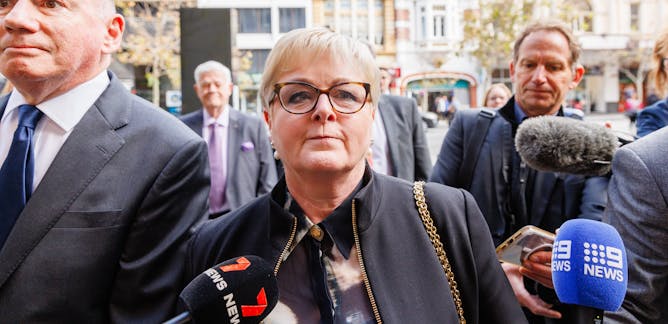|
|
|
|
Nau mai, haere mai.
How was your most recent power bill? If it was anything like ours, it hurt. And it’s not just households feeling the pain. Whole industries are throttling back operations, or threatening to, because of runaway wholesale electricity prices.
Something is clearly wrong with what we still insist on calling the energy “market” in New Zealand. With natural gas supply dwindling and low water levels in the hydro lakes, the “gentailer” power companies simply do what they are designed to do – profit from scarcity.
Energy Minister Simeon Brown has even floated the idea of importing liquid natural gas to supplement local supply and stabilise prices. But as Stephen Poletti, Bruce Mountain and Geoff Bertram argue, there is a much quicker, cheaper and probably more popular solution: a major, subsidised rollout of rooftop solar across the country.
“Based on the Australian experience,” they write, “we estimate modest subsidies for the capital cost of installing solar rooftop systems would add the equivalent of 700 megawatts a year (2% of the total) to the electricity supply. This significant new supply will reduce electricity prices.”
More than that, when combined with other growing renewable sources of electricity, mass rooftop solar would mean the hydro lakes could eventually be used as backup supply for peak evening demand times.
“This could mean shifting the management of the legacy hydro assets to provide a high-value product – stored energy – rather than the gentailers simply using hydro generation to maximise profits.”
|

|
Finlay Macdonald
New Zealand Editor
|
|

Stephen Poletti, University of Auckland, Waipapa Taumata Rau; Bruce Mountain, Victoria University; Geoff Bertram, Te Herenga Waka — Victoria University of Wellington
Energy Minister Simeon Brown wants to explore importing gas to prop up electricity generation – but subsidising the expansion of rooftop solar would be quicker, cheaper and more popular.
|

Lara Greaves, Te Herenga Waka — Victoria University of Wellington
With debate raging around the Treaty Principles Bill. It’s important to recognise a dispute between Māori and the Crown is not the same as a breakdown in relations between Māori and Pākehā in general.
|

Lisa Marriott, Te Herenga Waka — Victoria University of Wellington
Despite a 100% increase in complaints over the past decade, corruption and white-collar crime go largely unprosecuted in New Zealand – to the detriment of victims.
|

Apisalome Movono, Te Kunenga ki Pūrehuroa – Massey University
Drug cartels selling drugs in NZ and Australia are using Fiji as a waypoint – where kids as young as nine are being treated for meth addiction, while crime and HIV rates are climbing. What can be done?
|

Christopher Whitehead, Auckland University of Technology
Insurance companies will need to be innovative and explore new policy options as they manage the growing risk to homes from climate change and natural disasters.
|

William Grant, University of Canterbury
With every satellite placed into orbit, its reflective surface increases the ambient glow of the night sky, which is now 10% brighter than if it were illuminated only by natural sources.
|

Pii-Tuulia Nikula, Eastern Institute of Technology; Sara Walton, University of Otago
Business growth and cutting emissions don’t always go hand in hand. Airlines and other companies may need to rethink their business models to achieve a low-carbon transition.
|
From our foreign editions
|

Brendan Clift, The University of Melbourne
As Linda Reynolds’ defamation trial against Brittany Higgins continues, Peter Dutton is apparently considering suing fellow MP Zali Steggall. Our legal system is out of step with democracy.
| |

Ben McCann, University of Adelaide
Alain Delon was more than just a Gallic heart-throb. He redefined European cool and brought grace and steel to all his roles.
|

Aaron J. Snoswell, Queensland University of Technology
Generative AI needs tons of data to learn. It also generates new data. So, what happens when AI starts training on AI-made content?
| |

Juan Diaz-Granados, Australian Catholic University; Benedict Sheehy, University of Canberra
From Monday gig workers will be classified as ‘employee-like workers’ and given many of the protections afforded to employees, but not all.
|

Abdoulaye Diabaté
Mosquitoes can be genetically modified to help reduce the number of malaria-carrying mosquitoes, and therefore malaria transmission.
| |

Dan Baumgardt, University of Bristol
Don’t overlook your nose – it’s could have plenty to tell you about the state of your health
|

Lloyd Strickland, Manchester Metropolitan University
There are many greetings that provide a unique glimpse into the culture of its speakers, reflecting different traditions and ways of acknowledging, respecting and honouring others.
| |

Adam Eichen, UMass Amherst; Jesse Rhodes, UMass Amherst; Tatishe Nteta, UMass Amherst
Sexism played a key role in Democratic presidential nominee Hillary Clinton’s defeat − and Donald Trump’s victory − in 2016. Has America become more accepting of a woman leader? Not exactly.
|
|
|
| |
| |
| |

|
| |
| |
| |
| |
| |
| |
|
|
|
|
|
|
|